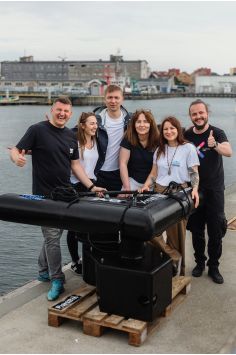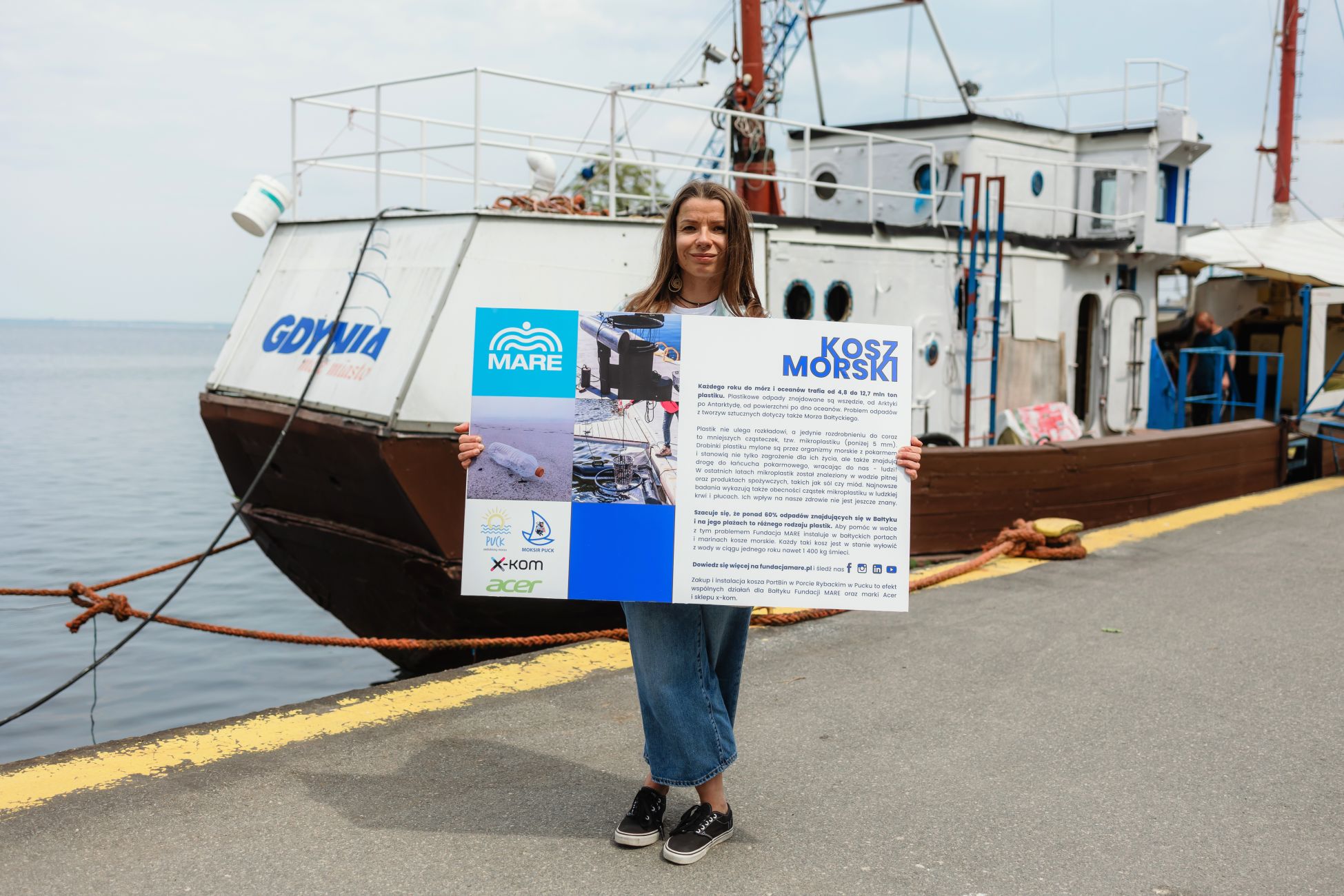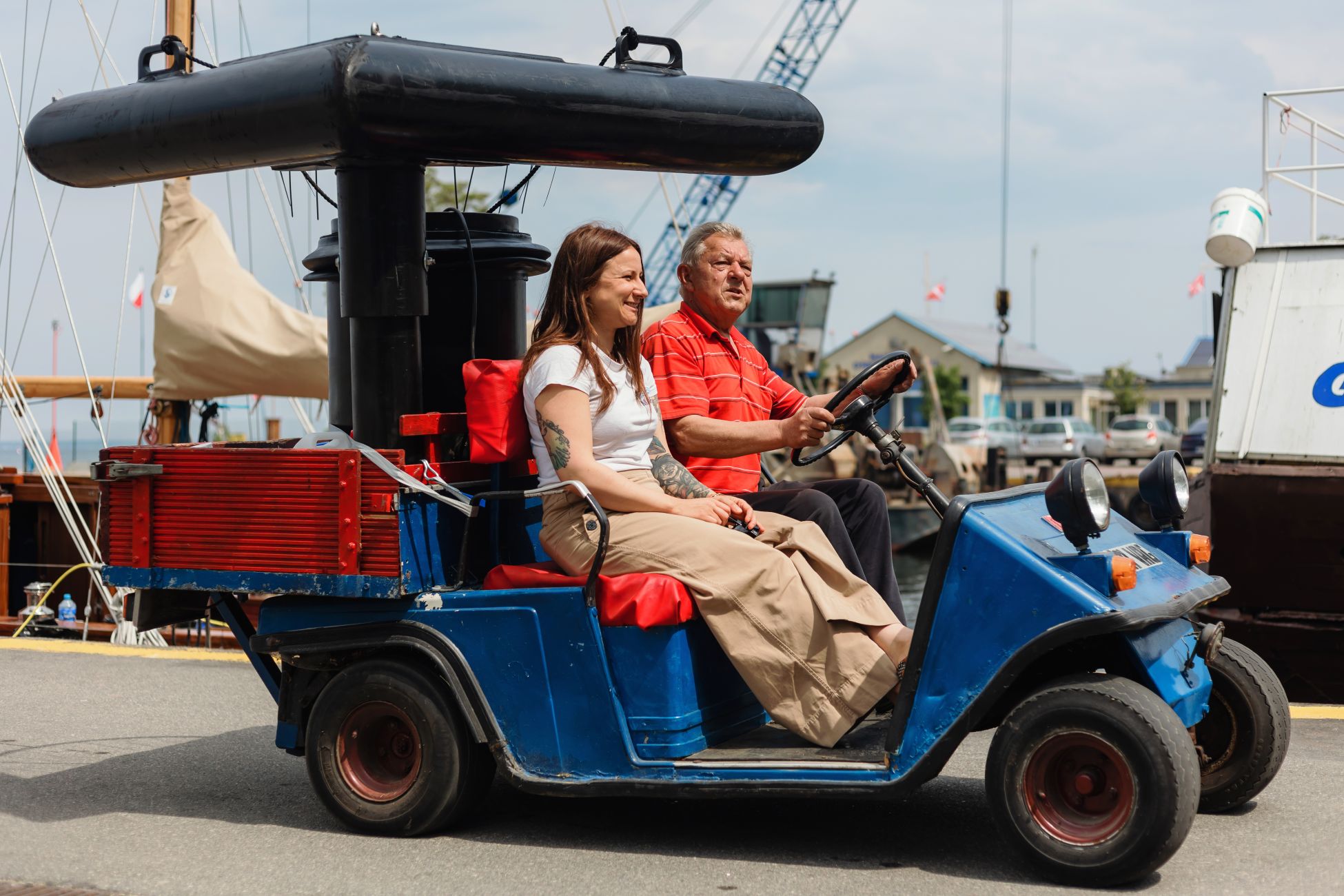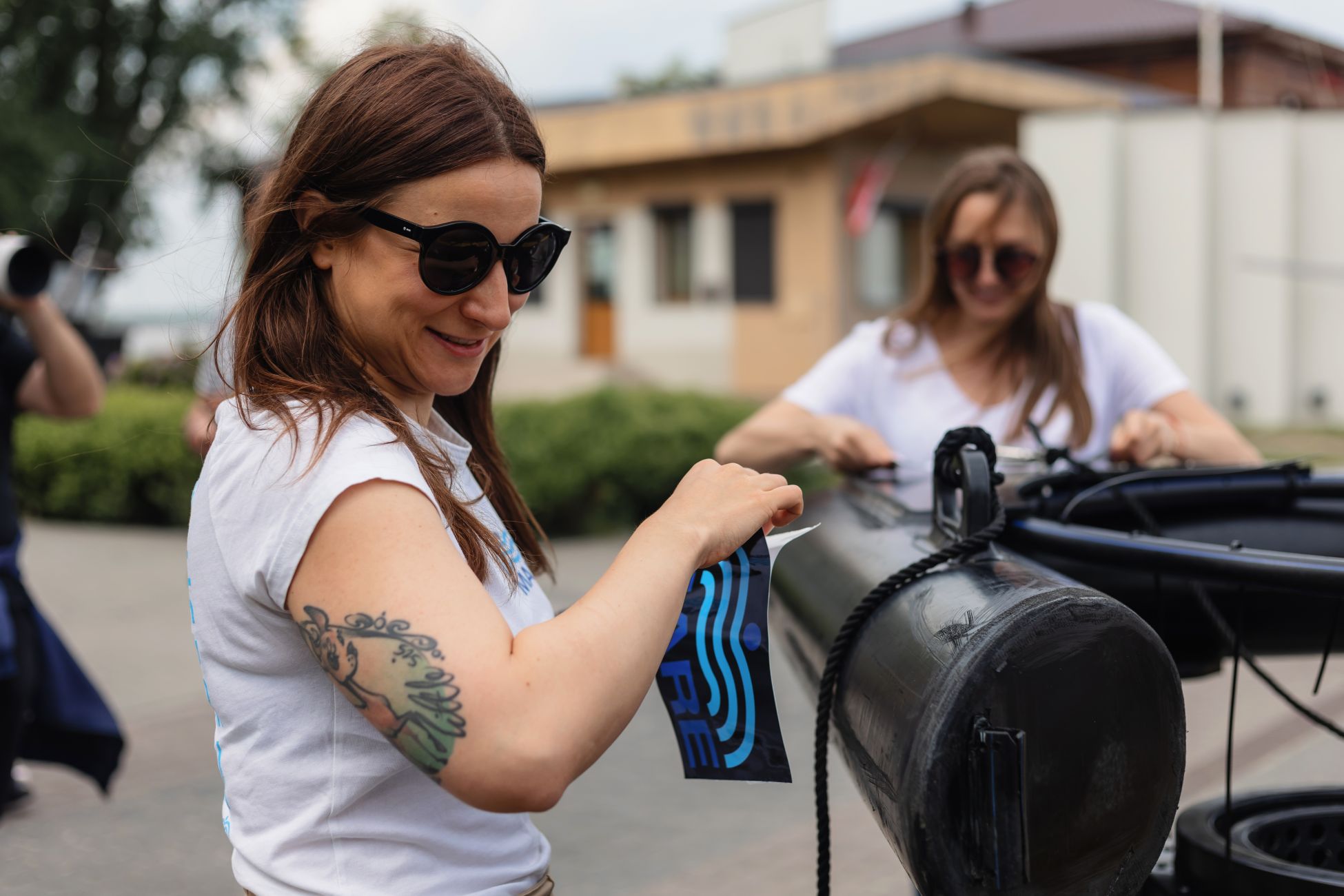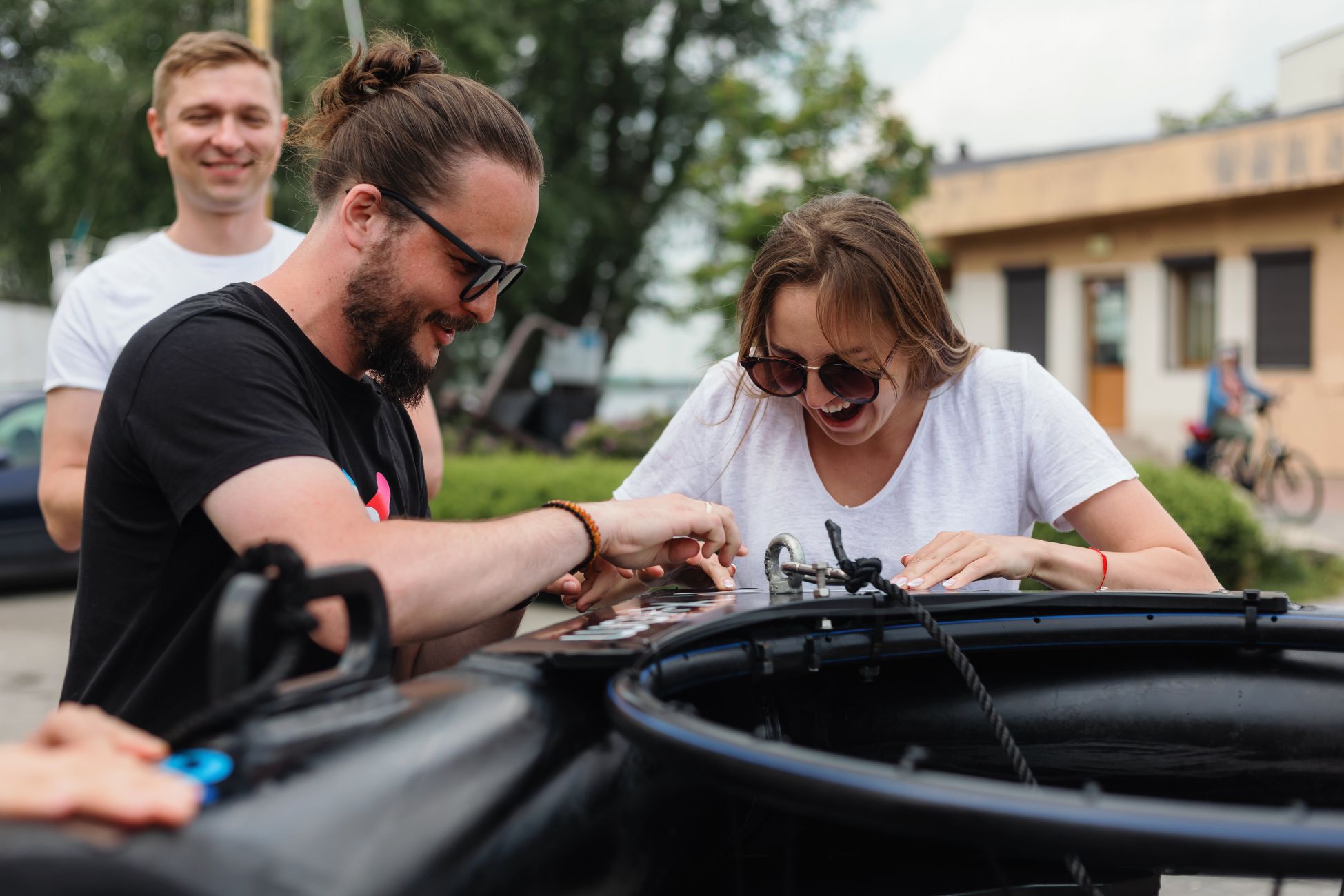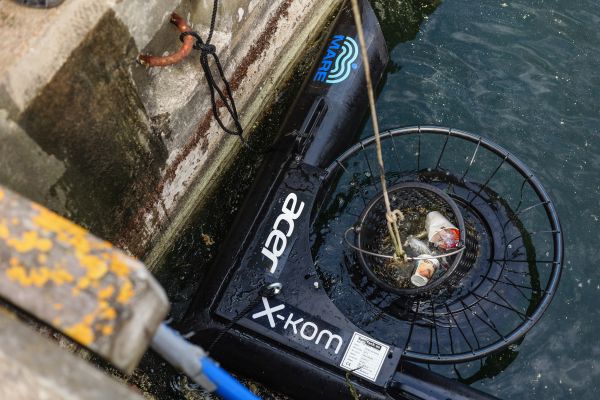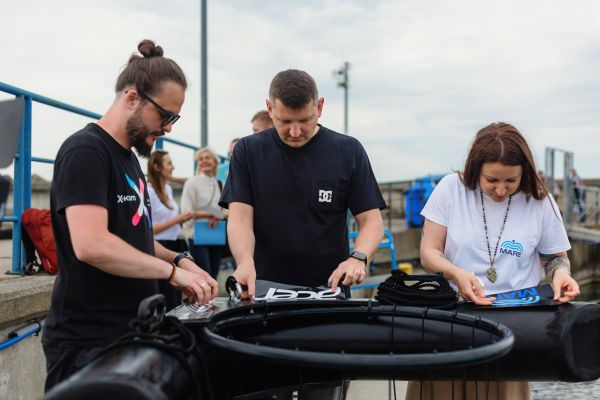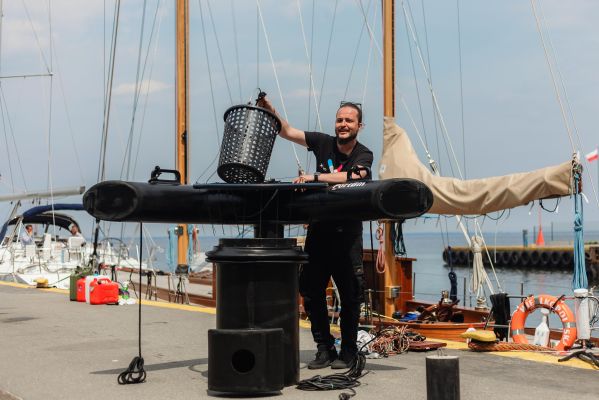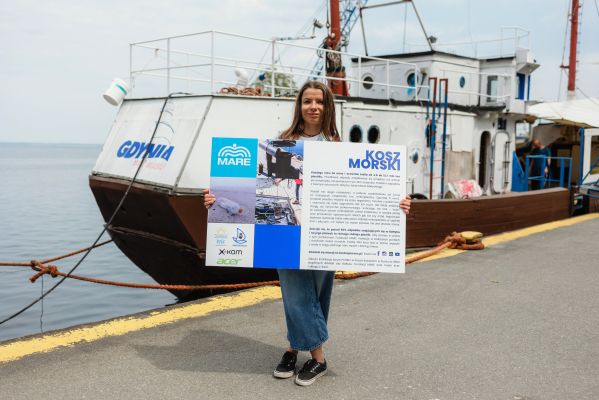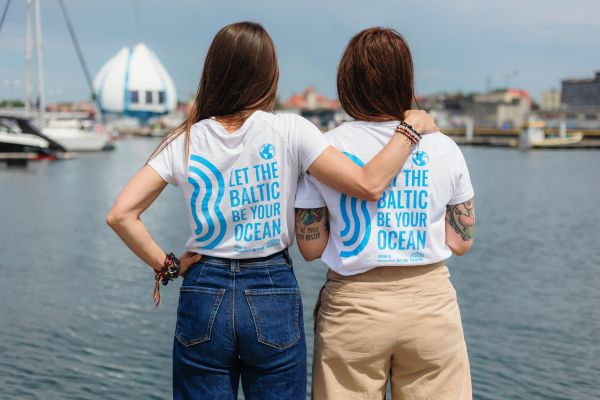Another three sea bins for the clean Baltic
Approximately 350 million tonnes of plastic are produced worldwide annually. This is more than the mass of all people living on Earth. Gigantic amounts of plastic have become an integral element of life on land and at sea. 4.8 to 12.7 million tonnes of plastic end up in the seas and oceans every year. Recycling is one of the most frequently mentioned solutions to the problem of plastic pollution. However, only 9% of the world’s plastic is recycled. Therefore, measures aimed at cleaning the seas and oceans from plastic are necessary. Among these measures are sea bins, which the MARE Foundation installs in Baltic ports since 2021. So far, the MARE Foundation has installed seven bins, and thanks to the co-operation with the ACER company and the x-kom store, another three PORTBINs are installed on the Baltic coast. Each bin is able to collect up to 1.400 kg of litter from water per year!
The Global Plastics Outlook report, published at the beginning of 2022 by the Organisation for Economic Co-operation and Development (OECD), refers to the fact that only 50% of plastic litter ends up in landfills, the share of recycled plastic accounts for 9% of all waste, whereas incinerated plastic waste accounts for 19%. The remaining 22% evades the management system and ends up in uncontrolled dumpsites.
According to HELCOM, approximately 70% of waste found in the Baltic is plastic. Today we know that the plastic that enters the environment will remain in it forever if it is not removed. Plastic does not decompose, but only breaks down into smaller and smaller particles, the so-called microplastics (particles below 5 mm), or even nanoplastics, which constitute a deadly threat to the living marine organisms and are also dangerous for the humans. The installed sea bins will help to remove plastic waste from the sea, before it breaks into microplastics and pollutes the ecosystem, becoming a threat to animals and humans - says Olga Sarna, the chair of the MARE Foundation.
Only 32% of waste is recycled in the European Union. This is more than the average global share of recycled plastic waste. But still low if we consider that only 25% of plastic waste ends up in landfills, and 43% is incinerated, mainly for energy purposes. It is worth noting that approximately 50% of waste destined for recycling is transported to the countries outside the EU.
These are not the only problems associated with plastics. It is estimated that in 2019 processes related to the production and incineration of plastics contributed to the emission of 850 million tonnes of greenhouse gases. Forecasts indicate that by 2050 this emission may increase up to 2.8 billion tonnes. Therefore, the search for innovation in more efficient waste treatment is one of the main challenges for science and technology, not only in the context of protecting the environment against the flood of plastic waste, but also as a way of addressing the climate crisis. However, in order to make the waste treatment system work better, it is necessary to implement a coherent legislation, including measures aimed at protecting the environment. Some announcements of changes can be seen already. One of the goals of the European Union is to achieve circular economy by 2050. The Environmental Investigation Agency (EIA) underlines that plastic pollution is part of the global crisis and calls for a solid global treaty.
- We are happy to support the MARE Foundation together with the x-kom network. Such green initiatives are definitely part of the Acer strategy and the Earthion project. As a responsible company, we know that our task is not only to deliver good quality equipment to our clients, but also to shape eco-friendly methods aimed at protecting our planet. Therefore we offer more and more products in the eco-friendly Vero line, which uses recycled plastic to make hardware items such as enclosures or keyboards – underlines Jeremi Rybak, Head of Marketing, Acer Poland.
The MARE Foundation is active in improving the state of the Baltic on many levels and places particular emphasis on reducing the amount of litter in the sea. For several years, the Foundation has been conducting several activities aimed at cleaning the Baltic. Together with fisheries organisations, it collects the so-called ghost nets, derelict fishing nets which float in the water column or are deposited at the sea bottom, together with divers cleans the beaches every year and educated the society. Thanks to the financial support of several companies, since 2021 the Foundation installs sea bins to remove waste directly from water in marinas and ports.
In the framework of cooperation with Acer x-kom network we have decided to install sea bins in 3 ports in the Puck Bay, which is particularly vulnerable to plastic pollution due to the high concentration of tourists during the summer. Another three bins will be installed in the marine port in Hel, the Puck port and the marina in Mechelinki. We are very happy to see how engaged the business companies and the ports are in measures aimed at protecting the Baltic ecosystem and how open they are to eco-friendly solutions. It is worth adding that one sea bin had already been installed in the port of Hel thanks to the initiative of the port authority. Such bins should be placed in every port and marine for the benefit of the Baltic. – says Olga Sarna from the MARE Foundation.
fot. Fabian Kiedrowski


